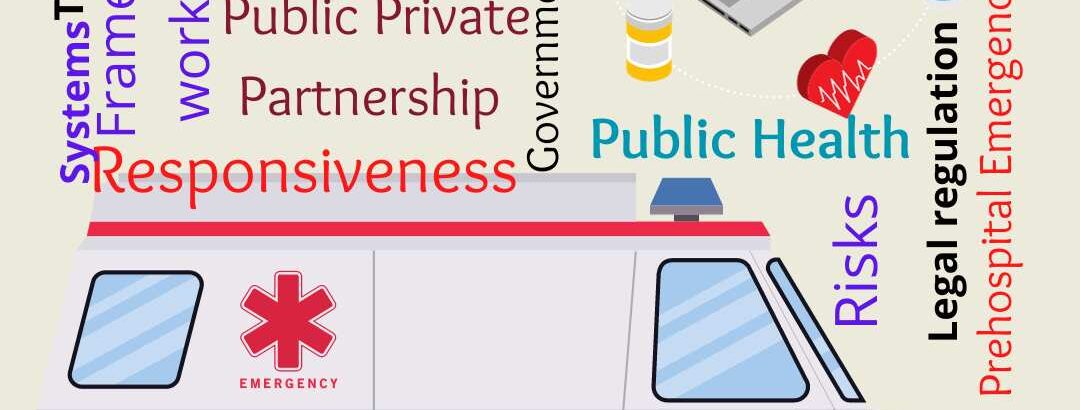During the Lagos health summit 4.0, experts came together to discuss the state, regulatory framework, challenges and possible solutions to issues surrounding prehospital, emergency and digital healthcare in Nigeria.
According to speakers at this pivotal event, yearly, 5 million deaths occur from conditions that can be managed at the level of the prehospital care. However, in the same light, digital heath solutions can be leveraged to provide quality healthcare to all populations across various communities.
Currently, only 0.005% of the Nigerian healthcare market is being served or have access to prehospital healthcare – Dr Tunde Oni (CEO, Eight Medicals)
Prehospital Healthcare in Nigeria
Prehospital care is an essential part of the healthcare system, which include: emergency responsiveness and preparedness, availability of urgent care services, health information and emergency skills at the level of homes and society, appropriate transportation to hospitals or other health facilities, and a functional supply chain of medicines and lifesaving equipment across all levels of (prehospital) healthcare system.
For instance, in chronic cases that needs stabilization such as nebulization for an asthma acute exacerbation, raised blood pressure or administration of anticonvulsants for seizures. These can be sorted in an Ambulance or Ambu-cycle without the need of getting to the hospital before receiving care. This can also make available equitable access to emergency care by the rich and poor, both in urban and rural areas.
Other components also needed to make these systems work are the people, ambulances, hospitals, including the data and credit networks circulating within the system. Notably, increase in disaster, accidents and disease burden in the healthcare market (e.g., pandemics) causes increase in demand for public and data safety systems, which is similarly recognised as a core part of prehospital healthcare services.
Furthermore, legal protection for roadside responders should be included into policies, as well as effective monitoring and evaluation process to ensure efficient delivery and improvement of these prehospital healthcare services.
In the bid to ensure equitable access to emergency care by the rich, poor, those in urban and rural areas, the universal access number for emergency health services in Lagos state is 112, while for Nigeria is 767.
Digital Healthcare in Nigeria
Taking control of our health by working on modifiable factors – such as lifestyle, diet, access to medicines and investigations for early detection and treatment – is key. Hence, the use of telemedicine and other digital health technologies is imperative to help save lives at a faster rate and reduce our morbidity and mortality rates. This is because, digital heath solutions have the capability to reach and get healthcare to all populations in all communities.
As they can be culturally sensitive, language-based, available to all sociodemographic classes and easily accessible from the confines of one’s comfort (i.e. bypassing traffic and avoiding queues and long wait times) to receive the same quality healthcare services from professionals, as it would have been provided onsite.
For example, telemedicine provides the platform for one to communicate easily, as well as express oneself maximally to healthcare professionals, regardless of the location of both parties across the country or language spoken. Because some of these apps are available in all languages and have health professionals working from various parts of the country. Also, these solutions allow for seeking care, its provision and delivery in various settings e.g. at work, at school, by parents for their wards and vice versa.
Other instances are the potentials of cutting-edge health technology for diagnostic care (e.g. the possibility of machine learning in radiology), and the potential impact of digital health in revolutionizing healthcare delivery in underserved communities. i.e. By making use of digital health platforms to facilitate training, upskill and create supervision models (under the few available or emigrated nurses and doctors) to the readily available community-based health workers providing care in these communities. This would largely improve the quality of care provided in these areas and also reduce preventable morbidity and mortality among residents.
“Nigerians are reactive and not proactive, which makes us suffer more during health outbreaks such as the covid pandemics. We need to be proactive about our health and put our health first, and one way is to enrol on a plan for digital health care service” – Mr Faithful Edozie (Head of Operations, Afri-Health)
Digital health tech is the future of medicine. As Nigerians, we have to open our minds to adopt digital healthcare, which has the prospects of delivering healthcare services to a large population with a comparatively small healthcare workforce, due to brain drain, high rural population, restrictive legal framework and so on. Hence, we should look into its innovations, apply them and invest in digital heath solutions to make quality and affordable healthcare available to all populations and at grassroots.
Challenges and Recommendations
Towards improving Prehospital and Digital healthcare in Nigeria, one of the challenges identified was that a lot of healthcare initiatives, particularly health tech start-ups, are found to be working in silos – as individual entities with little or no coordination. For instance, there is currently no recognised health informatics coalition in Nigeria. Some as well, also lack a clear-cut strategic plan for the present and future of their initiatives. Hence causing a lot of fragmentation and lack of synchrony within this health niche, especially in terms of innovative strategy, financing options and data collation.
It was then recommended that, for collaboration within the digital and prehospital health space; proper documentation of agreement and key roles to be played by each collaborating partners must be ensured. Furthermore, solutions and implementation from these health organisations must be data-driven. The aggregated and audited data derived from the different activities and outcome of services, should be used at all levels of care to inform decision and future learning, track key performance indicators (KPI) overtime, monitor progress and cross-correct for improvement of services.
In Nigeria, health is regarded as a constitutional matter. As different states across the federation, have significant variations and different perspectives to their health policies, processes and functionalities. This affects the national collection of data, resources mobilization, distribution and management, which also impedes transparency and data protection within the health system.
Another issue highlighted during the high-level discussion was the inadequate spending allocated to the Nigerian healthcare sector by the government, which affects the efficient allocation and management of resources in the healthcare system. Hence, from a government approach, the health sector must interface with ministry of finance and get the buy-in of ministers, governors and the newly elected government officials; to place priority on the financing, effective implementation and reinforcement of policies and environmental changes needed to run a good healthcare system.
Albeit a solution proffered to tackle these is to change our popular attitude of applauding “input-based activities without results” to “result-based activities” i.e. people generally should be responsible for “results” (not just activities), and our leaders be held accountable for providing good and quality healthcare for Nigerians. Likewise, aside investments into the sector via Public Private Partnerships (PPP), another viable means of contributing towards financing digital health mentioned by the speakers, is to buy stocks in health tech companies.
Although currently, only 10 million people have health insurance in Nigeria. Beyond healthcare insurance, adequate access to finance by health tech organisations can help to increase affordability, accessible and availability of healthcare to all.
Another course of action advised is the implementation of stronger legislation and regulatory framework that modulates the various parts of the healthcare system and holds it together. Particularly, a synchronised legal framework for digital health and telemedicine, in terms of user policies, informed consent, privacy policies that can be adopted across board.
Conclusively, the healthcare experts call for more regulation on efficiency of patient care, with standardized information on basic but defining queries such as: “What is a hospital?”, “How should a hospital be equipped?”, “What is the limit of digital or prehospital care?”, “Who can do what procedure on what premise or platform?” etc. Also, it was reiterated that;
the intentionality of PPP in Prehospital and Digital healthcare in Nigeria, towards achieving universal health coverage (UHC) in the not-too-distant future is highly crucial.
Editor’s note:
This article was written as an offshoot of fact-based and action-oriented discussions from participants, panellists, speakers and experts at the Lagos Health Summit (4.0). Further details about the panels and speakers at the event can be found here.




Discussion1 Comment
Pingback: Blockchain Technology in African Healthcare Industry: Use Cases, Challenges and Opportunities (1)